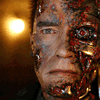When I bought this computer from a used computer retailer, I had them install the hard drive from my old computer into one of the extra drive slots. Figured I could use the extra hard drive space and that this would also make it easy to transfer my old files to the new computer. My first suspicion as to what is causing the problem is the second drive so I am thinking of removing it but don't know if there is anything I need to do other than open up the computer and take it out. So I guess my questions would be...
By the way, my computer runs on windows xp office edition. My old computer ran on windows xp home and that is what is installed on the second drive.
1. Does removing this second drive make sense as the first troubleshooting step? I have already moved all the files I need to the main hard drive and though I'll miss the extra space I don't really need it. If not, what would be a better first diagnostic test?
2. If yes to #1, do I just open up the computer and remove the drive? How can I recognize which is the main drive and which is the extra one. Are the drives located in order (c:, d:, e:)?
Thanks!
















 Sign In
Sign In Create Account
Create Account

